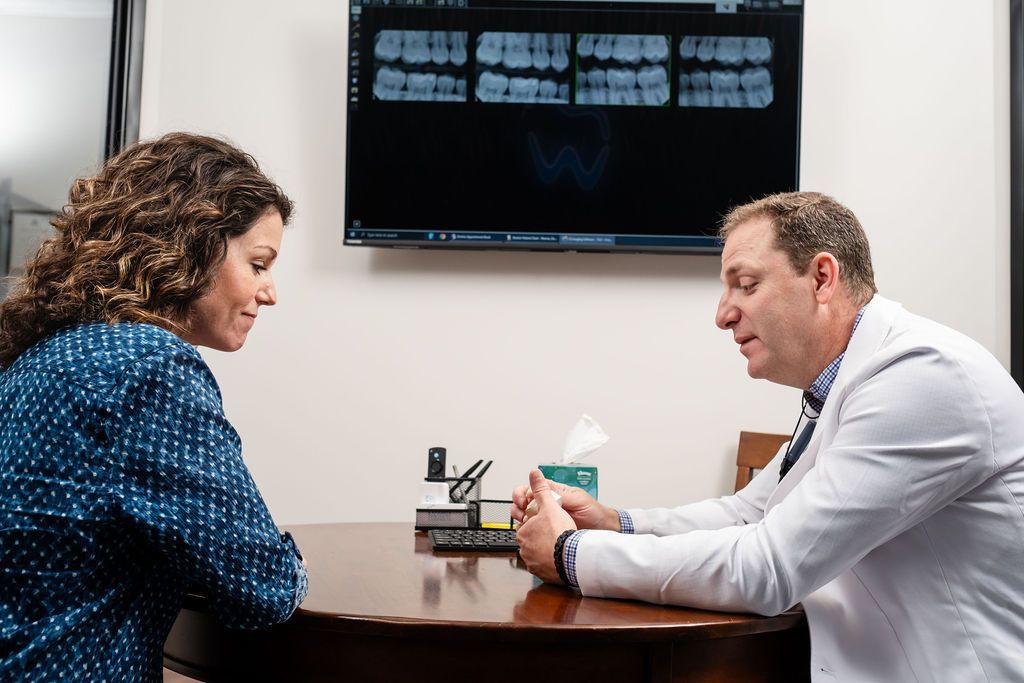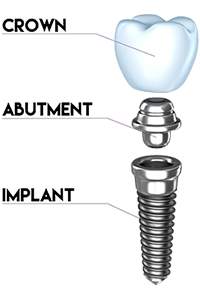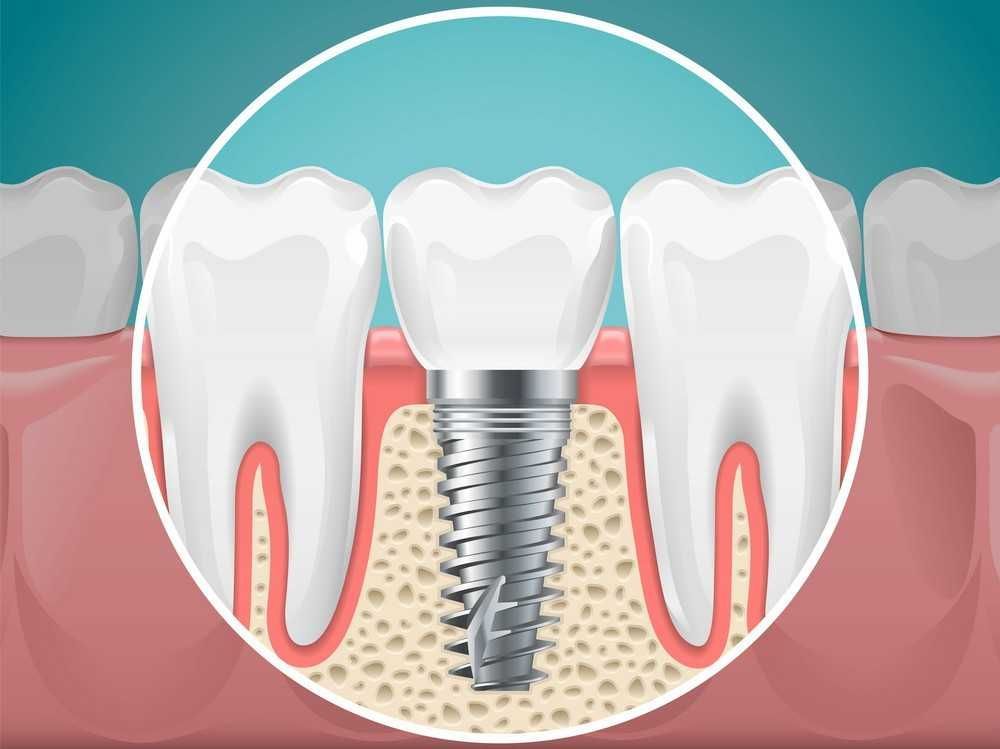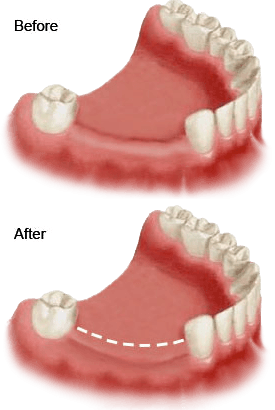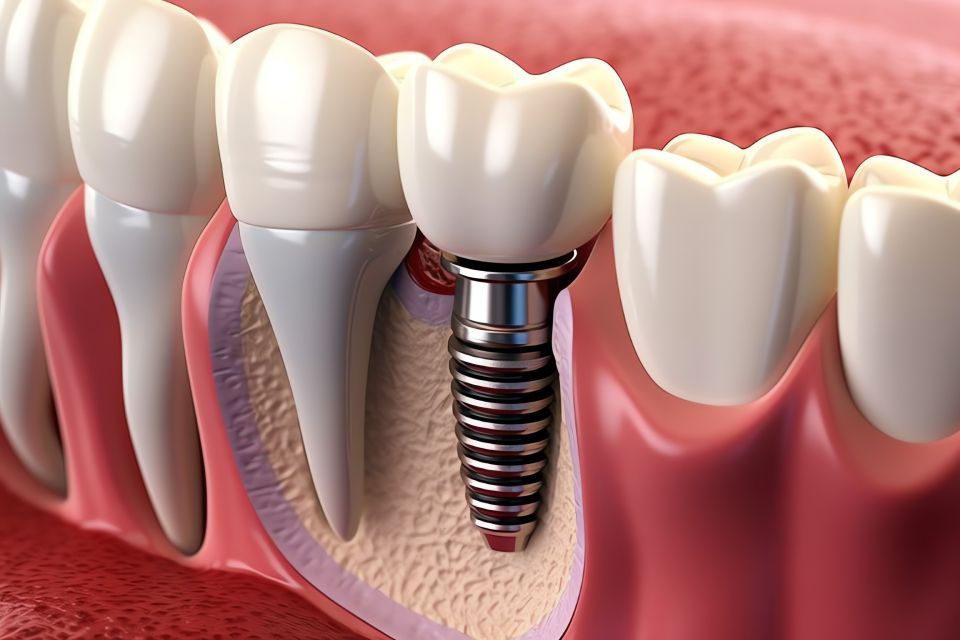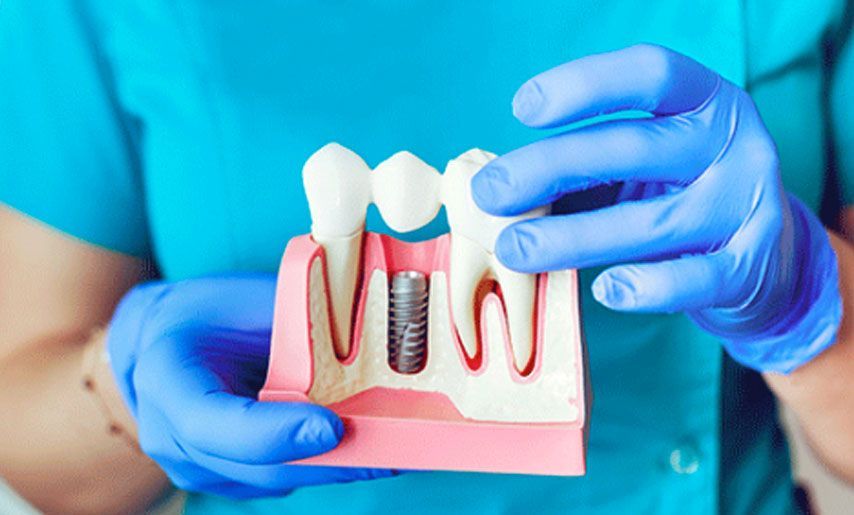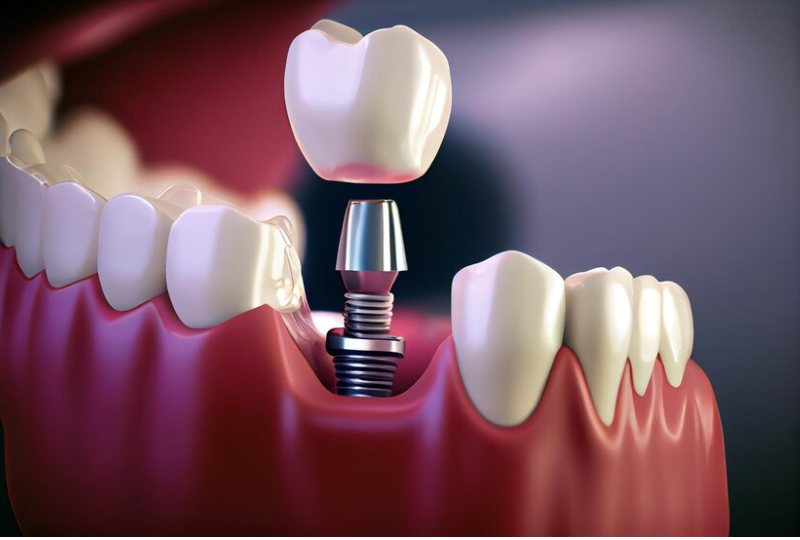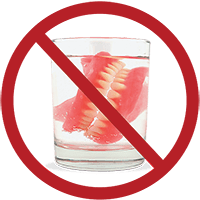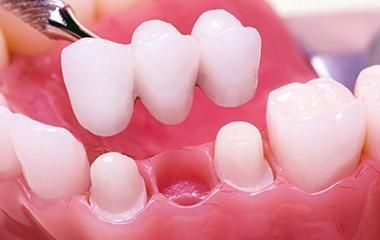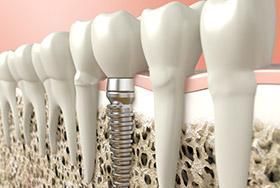Benefits of Dental Implants
Before treatment, Dr. Warren will explain every step of your procedure and go over the benefits of dental implants in detail
Natural-Looking, Natural-Acting and Natural-Feeling Tooth Replacement Options!
What is a Dental Implant?
A dental implant is a slender, biocompatible titanium post used to replace a missing tooth root. The implant is carefully positioned and embedded into the jaw, where it will integrate with the surrounding jawbone. Once the surrounding bone has sufficiently regenerated and healed, the implant can be topped with a crown, bridge or an implant-supported denture to restore all of the benefits of a real tooth.
Unlike traditional dentures and bridges, which have a limited lifespan, implants are extremely stable and with proper care can last a lifetime.
Who are Candidates for Dental Implants?
In the past, nonoptimum health conditions such as diabetes or heavy smoking made certain patients too much at risk for implant placement. But rapidly evolving technology, including better bone grafting techniques and precision tools that allow for more accurate treatment planning, has made implants an excellent option for just about anyone.
Benefits and Advantages of Dental Implants
Dental Implants behave like natural teeth
Most of our patients don’t notice any difference between their regular teeth and their implants. Implants provide excellent chewing power, so you can eat the foods you love and need for proper nutrition. They are brushed and flossed just like natural teeth. Even implant-supported bridges and dentures will restore a great deal of chewing power and will give you much of the functionality of real teeth.
Dental Implants can last a lifetime
Dental implants are made of safe, noncorrosive titanium that is totally biocompatible with the human body. They are designed to fully integrate (fuse) with the jawbone, which gives them permanent stability and enables them to support replacement teeth such as crowns, bridges or dentures. With proper care, your implants can last a lifetime!
When teeth are missing, the jawbone in the affected area gradually diminishes.
Dental Implants prevent bone loss
When we have all our teeth, our jawbones are continually strengthened and repaired by the stimulation provided by routine chewing and biting. But when you have a missing tooth or teeth, the bone underneath is no longer stimulated and will eventually reabsorb into the body. Your jawbone will lose 25 percent of its volume in the first year, and will lose more volume during each successive year.
Dentures contribute to and can even accelerate this loss of bone due to the way they rub against the bony ridge of the jaw while at the same time failing to provide healthy stimulation to the underlying bone tissues.
The good news is that a dental implant functions just like your natural tooth and will help provide the necessary stimulation to keep your jaw strong and healthy. This is true of single or multiple implants as in implant-supported crowns, bridges and dentures.
Dental Implants keep adjacent teeth stable
When a tooth root is missing, the surrounding teeth gradually drift toward the gap, shifting their positions and ultimately affecting your bite and your ability to chew. The tooth on the opposing arch can also be affected, since it no longer receives any counterpressure when you bite down. This can lead to trouble with your TMJ (temporomandibular joint).
Dental implants preserve the bone and structure of your dental arch, keeping your teeth alignment intact.
Dental Implants can help keep you free of gum disease
Gaps between your existing teeth serve as traps for food and bacteria and can contribute to gum disease. With dental implants, there are no unsightly, unhealthy gaps to cause problems.
Dental Implants can prevent facial sagging and premature aging
Not only do dental implants help prevent bone loss, they also prevent unattractive facial sagging which is the unfortunate result of having many or all of your teeth missing.
Continuing bone loss in the jaw causes the lower part of the face to lose its structural integrity. The height between the tip of the nose and the chin will decrease, giving the lower third of the face a “collapsed” look. This results in wrinkles around the mouth, thin lips, sagging skin and jowly cheeks as the jaw recedes and the chin protrudes. Patients with this progressive decline in facial structure look much older than their years.
Dental Implants vs. Dentures
Stable teeth with good chewing power!
Dental implants are a far superior choice when it comes to stability and durability. Dentures have to be relined and continually adjusted over the years. The denture that fits today will eventually have to be replaced to account for the continuous changes in your jawbone due to bone loss.
- Denture wearers have very limited food choices since dentures can only provide ten percent of the natural chewing force of real teeth.
Below are some things to consider if you are trying to decide between traditional dentures or an implant-supported denture.
- Dentures can slip out while eating or speaking. Implants and implant-supported dentures are securely anchored and will not slip at all.
- Dentures can make clicking noises while eating. Dental implants and implant-supported dentures are stable and do not move or make disturbing noises.
- Dentures often have to be held in place by a dental adhesive.
- Dentures offer weak chewing force and you won’t be able to eat many of your favorite foods. Dentures can move around while you are chewing, which is annoying and makes eating a chore instead of a pleasure. Dentures offer ten percent or less of full chewing power. Dental implants give you full chewing power, and implant-supported bridges and dentures give you considerably more chewing power than regular dentures can provide.
- Dentures cover the roof of your mouth. With dental implants, there is no false palate covering the roof of your mouth to interfere with your sense of taste. Even implant-supported dentures can usually be fabricated without a palate.
- Dentures have to be taken out for cleaning. With the exception of a removable implant-retained denture, dental implants and implant-supported restorations are permanently fixed in your mouth and you can care for them like you would real teeth.
- Dentures fail to provide the needed stimulation to prevent bone loss. Jawbone needs the stimulation of high-force chewing to keep its volume. Implants help preserve the jawbone.
- Progressive bone loss associated with dentures can result in a “collapsed” facial look. Continuous wearing of dentures over the years contributes to the lower third of your face sagging, causing wrinkly skin, thin lips and an over-all shrunken look to your face. This can cause a person to appear older than their true age.
Dental Implants vs. Dental Bridges
A traditional dental bridge consists of a series of connected crowns to cover the gap left by a missing tooth. In certain situations, bridges can be a suitable option for tooth replacement as they are relatively fast to place and do not require surgery, however, they have certain disadvantages. The teeth on either side of the gap, even if they are healthy, will need to be trimmed down and fitted with crowns that are part of the bridge. This could compromise these adjacent teeth due to complications that can occur, including decay under the crowns, although this is not very common. If you have teeth that need crowns and they are next to a gap left by a missing tooth, a bridge might be a good option for you.
Dr. Warren prefers to keep your healthy teeth intact if at all possible, and considers implant-supported bridges a far superior tooth replacement option.
Dental implants Fort Worth will let you preserve your healthy teeth. They help prevent bone loss, and can last a lifetime whereas bridges usually last about ten years.
A traditional dental bridge requires the shaving down of several teeth for the bridge to be placed.
To make an appointment, call 817-292-8080 or click on the button to request an appointment online.

